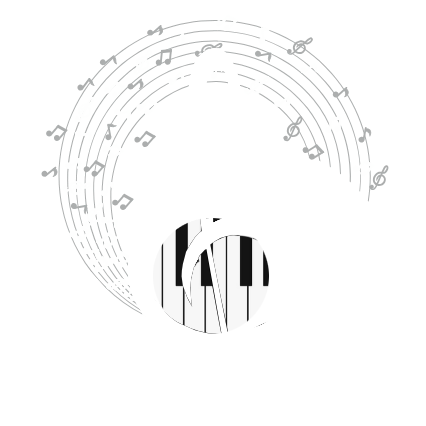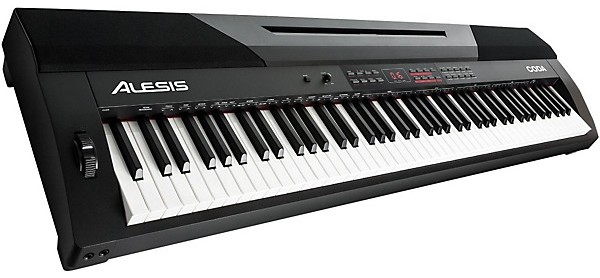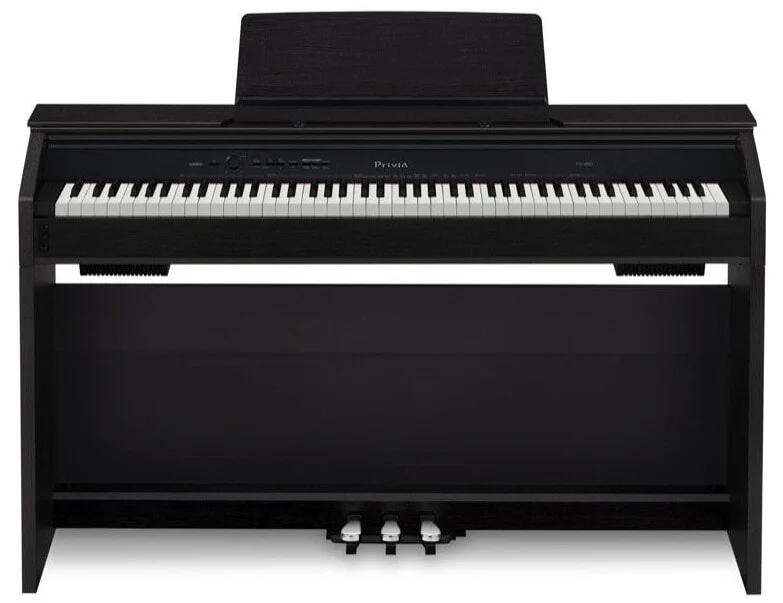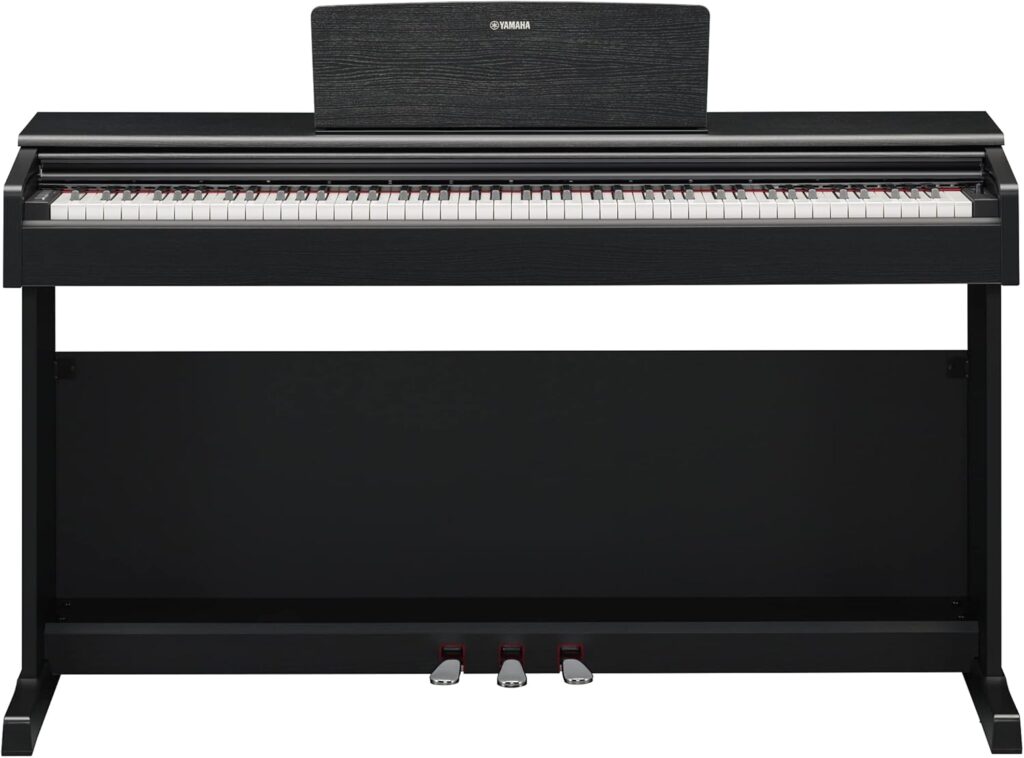Ready to start learning piano without breaking the bank? You’re not alone. One of the most common questions for new players is: “What’s the best beginner piano I can afford?”
Luckily, today’s market is filled with affordable digital pianos that don’t sacrifice the feel, sound, or features you need to build real skills. We’ve compared the best budget models—side by side—to help you find one that fits both your music goals and your wallet.
Let’s break it down.
1. Yamaha P-71 – Trusted Quality on a Budget
Why it’s great:
Yamaha’s most affordable full-size digital piano, available exclusively on Amazon. Simple, reliable, and backed by a legendary brand.
Specs:
- 88 weighted Graded Hammer Standard keys
- 10 built-in voices
- Dual mode for layering
- USB-to-host connectivity
Pros:
✔ Authentic key feel
✔ Simple controls
✔ Great resale value
Cons:
✘ Fewer features than competitors
✘ No Bluetooth
Best for: Beginners who want Yamaha feel and tone in a no-frills package.
2. Casio CDP-S160 – Slim and Stylish Starter
Why it’s great:
Compact and affordable, the CDP-S160 offers a smooth entry into piano learning, with scaled hammer-action keys and great sound.
Specs:
- 88 scaled hammer-action keys
- 10 instrument voices
- USB MIDI + sustain pedal
- Optional battery power
Pros:
✔ Slim design fits tight spaces
✔ Lightweight and portable
✔ Easy to use
Cons:
✘ No Bluetooth
✘ Basic speaker output
Best for: Beginners with limited space who want a simple and stylish piano.
3. Alesis Prestige – Powerful Features Under $500
Why it’s great:
The Alesis Prestige brings fully weighted keys, quality speakers, and beginner-friendly tools into a budget-friendly build.
Specs:
- 88 full-sized graded hammer-action keys
- 16 built-in voices
- Layer, split, and lesson modes
- Built-in metronome and recording
Pros:
✔ Excellent value for weighted keys
✔ Clear onboard screen
✔ Good speaker quality
Cons:
✘ No USB audio output
✘ Lacks Bluetooth support
Best for: Students who want weighted keys without extra bells and whistles.
4. Donner DEP-20 – Features Galore at a Low Price
Why it’s great:
For under $500, the DEP-20 offers more voices and rhythms than any other model in this comparison. Great for creative learners.
Specs:
- 88 hammer-action keys
- 238 tones, 200 rhythms
- Dual mode, recording, metronome
- LCD screen and MIDI support
Pros:
✔ Loaded with features
✔ Easy to explore sounds and styles
✔ Affordable
Cons:
✘ Slightly less realistic key feel
✘ Bulkier than other models
Best for: Beginners who want more than just a piano—they want a full music workstation.
5. Roland GO:PIANO88 – Portable and App-Friendly
Why it’s great:
Not fully weighted, but it offers the famous Roland piano tone, wireless connectivity, and a lightweight design for on-the-go practice.
Specs:
- 88 touch-sensitive keys
- Bluetooth audio + MIDI
- Built-in learning tools
- Battery or adapter powered
Pros:
✔ Lightweight and portable
✔ Great for app-based learning
✔ Solid sound engine
Cons:
✘ Not weighted (not ideal for technique building)
✘ Limited onboard voices
Best for: Casual learners or younger players using apps like Simply Piano or Flowkey.
Quick Comparison Table
| Model | Keys | Weighted | Voices | Bluetooth | Price Range |
| Yamaha P-71 | 88 GHS | Yes | 10 | No | $500–$600 |
| Casio CDP-S160 | 88 Scaled Hammer | Yes | 10 | No | $400–$500 |
| Alesis Prestige | 88 Graded Hammer | Yes | 16 | No | $450–$500 |
| Donner DEP-20 | 88 Hammer Action | Yes | 238 | No | $400–$500 |
| Roland GO:PIANO88 | 88 Touch Sensitive | No | 10 | Yes | $400–$500 |
Conclusion
The best budget beginner piano is the one that meets your current needs without overcomplicating things. Whether you’re looking for weighted keys to build proper technique or features like Bluetooth and layering to keep things fresh, there’s something here for every beginner.
- Go for Yamaha P-71 if you want a classic, no-nonsense start.
- Pick Casio CDP-S160 for portability and a compact setup.
- Choose Alesis Prestige for balanced performance and clean layout.
- Try Donner DEP-20 if you want all the sounds and features.
- Opt for Roland GO:PIANO88 if you’re learning via Bluetooth apps and want something light.
Start simple. Play often. And let your piano grow with you.
FAQs
- Is it okay to learn piano on a budget model?
Yes! Many affordable digital pianos offer everything you need to start learning the right way. - Do I need weighted keys as a beginner?
Weighted keys help build proper technique, but for young kids or casual learners, touch-sensitive keys can be enough early on. - Can I connect budget pianos to learning apps?
Most offer USB or Bluetooth MIDI (especially Casio and Roland models), so yes—app support is common even in affordable models. - What’s the difference between touch-sensitive and weighted keys?
Touch-sensitive keys respond to how hard you press. Weighted keys replicate the feel of an acoustic piano for better technique development.
How long can a beginner use a budget piano before upgrading?
Many entry-level digital pianos can last years. If it has 88 keys and a decent feel, you can learn on it all the way through intermediate levels.



